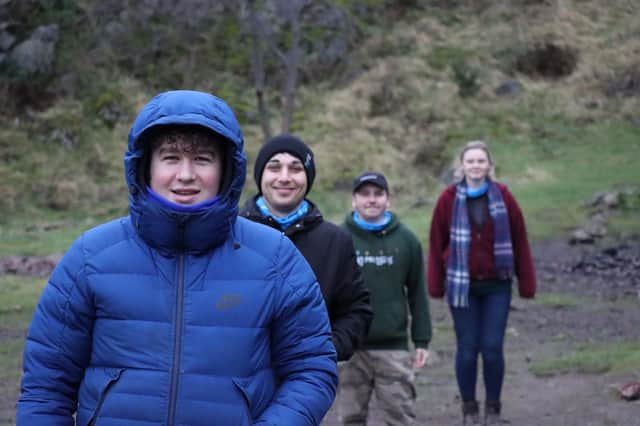Limited contact during Lockdown has led to 'social skill fade' for many - Mike Strang


At Venture Trust, we are in the business of supporting some of Scotland’s most vulnerable people to build self-belief and confidence by providing a safe environment to practice, develop and learn the social skills they need. Normally we offer personal development and therapeutic interventions working with participants in their own communities and by harnessing the power of the outdoors in urban green spaces and the wild areas of Scotland.
Like so many other organisations, the pandemic has impacted our service delivery and we have had to adapt to continue to support those who need it most through limited face to face work and digital channels. While we know this support has been a lifeline for people we work with; there is no denying a lack of access to specialist support delivered in person will result in social skill fade during lockdown.
Advertisement
Hide AdAdvertisement
Hide AdEven for our highly professional staff operating in the outdoors, skill fade is a phenomenon we as a sector are very aware of. If a mountain leader has not been in the hills or worked with groups for a period, then we would expect a degree of skill fade.
When asked how 2020 has affected our participants we heard concerns such as: “Lockdown has made me come back into myself and almost forget how to socialise which has been challenging. It has also thrown a lot of my plans out the window and the uncertainty of it all has been very anxiety inducing.”
Social and life skills not only help us build relationships but can lead us to securing employment or accessing other support services. These skills also lead us to feeling good about ourselves; we reduce stress by laughing, we feel a sense of belonging and we combat loneliness.
Pre-Christmas when we thought we may be able to get our teams and participants back into the hills our staff had personal time in the hills, technical training, a first aid refresher and spent considerable time discussing what would be different about working in a Covid-19 environment. These sessions aimed to address any discernible skill fade.
It is fair to conclude that if people have not had time in the hills and glens of social interaction that their skills in that area would also fade. Those who were struggling pre Covid-19 now may face a bigger divide and who is there to re-skill them and bolster their confidence to re-engage? At a time when statutory services are over pressed the ongoing collaboration of the third sector is crucial to support our most vulnerable, providing a vital life link now and giving the skills to thrive in a recovering society.
At Venture Trust we will continue to digitally engage with the people who have been disproportionately impacted by the pandemic and lockdown. And when we do return to being able to provide our specialist learning and development in the outdoors and communities, we will build on the support we have been providing so our participants see and reach their potential.
Mike Strang, Director of Operations, Venture Trust
Comments
Want to join the conversation? Please or to comment on this article.